- Home
- Heather Graham
Blue Heaven, Black Night Page 8
Blue Heaven, Black Night Read online
Page 8
The blood drained from her face as she realized suddenly that she was staring down at his bare feet and that he was once more towering over her. A little cry escaped her as he bent down and scooped her, blanket and all, into his arms. She could not prevent the alarm from leaping into her eyes as she met his.
“I apologize, Duchess,” he said more softly than she would have expected, “but I do not trust you.”
She found herself deposited upon the rear corner bed, far from the door. But although he had been far from solicitous, he had not handled her roughly, and Elise watched him as he walked back to the bench with speculation brewing within narrowed eyes.
He was many things, she decided, primarily rude, but although he hadn’t the tender and courtly mannerisms that graced Percy’s little finger, he wasn’t a cruel man. If she had realized from the start that he was not one of the thieves in pursuit to silence her into eternity, she would have turned to him and begged his protection. If she hadn’t been so terrified and fought him so foolishly, he would have probably believed her.
Instead, it had come to this.
This night of degradation she would never forgive or forget...
If only she hadn’t tried to stab him—
Or if only she had succeeded!
But that was all in the past. If she didn’t drag her wits about her quickly, she stood in good stead of finding herself in an even worse situation. If she could only swallow her anger and her pride, just long enough to save herself!
She thought dryly of Henry, her father. There had been a time when he had been the greatest knight and king of Christendom. He had possessed skill and daring and strength and had ruled his lands so justly that he had come to be known as “Henry, the Lawgiver.” But for all his vast strengths, he had always had a weakness for women. A pretty face and ample figure could easily attract his attention; a winsome smile could take his heart, if only for a brief spell.
All she needed was a brief spell.
And she didn’t need to take the dark knight’s heart. All she had to do was soften it from steel, and pray that somewhere in his soul a core of mercy and chivalry did exist.
Elise became aware that he was watching her in return, and she allowed her lashes to fall farther, shielding the sharp cunning in her eyes as she laid her plans.
To Bryan it appeared that she had at last been subdued, and it was not without a certain exhausted gratitude that he saw her so. He had enjoyed but an hour’s sleep since the king’s death, and his weariness was sinking into his bones.
But there was something about her huddled form that also made him feel irritatingly guilty. She was huddled with her feet beneath her, the blanket clenched tight to her breast with long, delicate fingers. But above those fingers he could see the high swell of her firm breasts, and the smooth, ivory column of her throat. Her head was slightly lowered, so he could not see the luminous turquoise pools beneath the rich honey lashes, but he did note the purity of her bone structure. Her hair, almost thoroughly dry now, fell about her in a lush cascade, and he would be hard put whether to name the color sunrise or sunset. Copper burned within it, and the most glorious gold. And as he stared at her, he could not help but wonder how it would feel to be completely entangled within that skein of gold, knowing its silken caress with the whole of his body as well as his fingers.
From such thoughts it was natural to think back just minutes, when he had held her beneath him. Natural to remember that all of her flesh was purest ivory, without blemish; that her breasts tempted a man to touch and taste, like firm, ripe fruit, budding high and proud, their crests like the beautiful, enticing color of a dew-morning rose. Her waist was narrow, curving like that of the ancient Roman’s Venus to flair into a tantalizing bounty . . . that her belly dipped low between them until ivory flesh was shadowed by the mystique of a lush triangle of deepest honey and copper and gold . . . Her legs were made to entwine with a man’s, long and soft to touch, yet shapely.
Not even Gwyneth, the woman he would wed, could match this girl for sheer perfection.
Bryan took another long drink from the leather gourd of wine, feeling the heat well up within him. He studied the girl openly, yet it seemed not to matter, for she kept her eyes—discreetly? nervously? furiously?—lowered.
She was a thief, at best, he reminded himself dryly. Possibly a harlot, probably a murderess.
But he couldn’t keep his senses from coming acutely alive, and he admitted with a dry shrug that he couldn’t remember wanting a woman as he wanted this one. He was young, and vibrantly healthy. And, as tired as he was, his warrior’s body was reminding him that his desires were healthy at the best of times, and lately, he had been on a long stretch of deprivation.
Yet, as he had told her, he would never think to force himself on a woman—not even one of her treacherous nature.
He closed his eyes and swallowed down a long draft of the wine. It was irritating, annoying—and painful. But natural, he assumed. Even if she was all that she might be—thief, harlot, murderess—he was contemplating a softening of his judgment, merely an appeasement of an elemental desire.
Still, beneath the shelter of the blanket, she looked both woe-begone and proud. With her hair tangled and flowing about her, she might easily have been the heroine of a legend. The Lady of the Lake, perhaps; Guinevere, torn between two lovers.
Lost in misery . . .
Bryan shrugged and a grin tugged at his lips. Damn, but he was tired. Surely that was the only reason such fancy played upon his mind. But he was not God; nor was he a king, nor even the magistrate of a court of law. He held no power of life or death except in battle, and his battle with her was over. The storm still raged, shrilling through the cracks and crevices of the cottage. They would not travel again that night, and as he was her jailer, he was responsible for her care.
He rose and walked over to her. She did not raise her eyes until he offered the gourd to her. She stared at him suspiciously, as if doubting he might wish to see to her welfare in the least. Something about the still haughty cynicism in her stunning eyes touched a core within him, eliciting both a tenderness and a new anger. Yes, he had treated her roughly, crudely. But she had been the one fleeing the castle. She had pleaded innocence, then proved herself to be a liar with a ring. If she wanted courtly manners, she should have behaved in a courtly fashion.
“It’s wine,” he said brusquely. “No poison, Duchess. I drank from it myself.”
He was startled when she suddenly began to tremble, then moistened her lips with the pink tip of her tongue. “Thank you,” she whispered, taking the gourd and sipping the wine.
He was tempted to move away from her; she was betraying her fear of him, and that feminine weakness brought forth the surge of desire to protect.
She needed no protection . . .
But he could not back down himself, and so he watched her as she drank the wine. She took a long sip, then coughed, and stared at him once more with startled eyes.
Bryan couldn’t prevent a spurt of good-natured laughter. “Duchess, I assure you the brew is nothing but wine. But it is a local variety, quite potent, and not nearly as smooth as some to the palate. But it will not harm you.”
Her eyes lingered upon him a moment, a mist of emerald-blue light. Then her lashes lowered once again, and she took another long swallow of the wine.
When she finished that time, she handed the gourd back to him and kept her eyes upon his with level intent. She spoke quietly.
“You are wrong about me, Sir Stede,” she said softly.
“How so?” he heard himself ask.
“I took the ring from Henry, yes. But nothing else. And I was not with those who robbed him so irreverently and murdered his guards.”
Elise forced herself to sit calmly, and to keep her eyes upon him as she spoke. His left brow raised in skepticism, but he did not dispute her, and she wondered if she had not at last found the chink in his armor. He turned from her and walked back to the fire, staring at it
with his hands clasped idly behind his back.
“Despite the fact you tried to kill me,” he said at last, “I would like to believe your story. I am not fond of public executions, or of seeing people locked away from the light of day for the remainder of their lives. But your story makes no sense. Why travel on such a night to pray at the bier of the king? Richard will come—he will have to. But who else? Eleanor has been locked away. John turned traitor. The king’s bastard, Geoffrey Fitzroy, is expected, but no one else. Henry’s body must be interred. And under circumstances such as these, only those who were with him at the end are expected to care for him here. Masses will be said throughout his lands.
“Yet you came, the king was robbed, and fine men were murdered. Then you ran from me as if I were the devil, and attempted to end my life with your dagger. I find that you carry the king’s ring. You still tell me that you came only to pray, and took only the sapphire ring. But there is no reason for me to believe you. Tell me why I should, and I will try.”
How she wished she could throw the gourd at his ruggedly handsome and arrogant features and tell him that she didn’t give a tinker’s damn if he believed her or not! But she had to care, because only by disarming him could she hope to escape him.
“The matter . . . was personal,” she whispered, careful to make her words broken and breathy.
He turned from the fire and stared at her sharply, and for a moment she almost panicked, thinking he had realized just how personal it had been. But he arched that annoyingly superior brow once again and said quietly, “Such a reply left as is could easily cover many a deception.”
Elise closed her eyes briefly, allowing her mind to spin. The truth; she could tell him the truth. She could take the chance that he would behave honorably and hold her secret . . .
She almost laughed aloud at herself with the irony of her thoughts. Honorably? Stede could never behave so. He had already proven himself to be one of the most ruthless and callous men she had ever had the distinct displeasure of meeting.
A hollowness settled over her, helping to calm her. No, no matter what lie she had to tell, or what deception she had to play, she could not tell him the truth. He might well cry it out to the world, and laughingly embellish upon his evening with the “king’s bastard daughter.” He could too easily be believed; people might begin to see the resemblance she bore to her father . . .
Her dream of her life with Percy would be shattered, her heart warned her. But it was her mind rather than her heart that convinced her that a lie, no matter how ridiculous and shameful, would better suffice than the truth. Henry was dead; Richard was coming to the throne. The scales of power among the nobles and soldiers would be swaying precariously. If someone wished to wrest Montoui from her, this would be the time to strike. And although her forces were strong, there were always those that were stronger. If the truth of her birth were known, Montoui could be pitched into bloody warfare; hundreds could die; the homes and farms could be burned to the ground, and the animals slaughtered by the attackers, leaving the people of the now rich duchy to starve when summer faded to winter . . .
She had to lie.
She had to manage to manipulate Stede. He had the strength of his sex; she must use the alluring guile of her own.
She had often managed to manipulate her father, and Henry had been the king. She could sway Percy to her whims with a soft smile and sweet whisper. Why not this knight?
Why not, indeed.
It seemed her only choice. And if it worked the way she planned, she would be free. If not . . . it would spread a different rumor. Elise smiled secretively. Her lie would be far more demeaning than the truth, but a demeaning deception would be the thing that saved her. And if Stede spread that rumor . . .
No one would believe him. Her chaste affair with Percy and her moral standards were too well known.
There was a way out. She had to play her role with sweet, feminine artistry . . .
V
She lifted her chin, yet allowed herself to tremble once more. “Sir Stede, by what I have suffered at your hands so far, I hardly find you to be a man in whom I would care to confide.” Elise fluttered her lashes prettily and took another long sip of the wine. It was an extremely potent drink, fruity and dry. She had been drinking wine and ale all her life, but this . . . this . . . was nice. It filled her with warmth. And with courage. False courage, she was aware, but desperately needed, nevertheless.
For a moment he was caught, caught by the firelight playing upon the wealth of her hair, by the soft whisper of her voice, by the plea within it.
“Milady, if you can say something that will clear you of the deed, please do so.”
It was working! Like every other man, he could be veered from his course and led by the nose with little more than the effort of a false smile. Exuberance and warmth and a feeling of power swept through Elise and she determined to play her act. She stood, sweeping her blanket along with her chastely, yet swiftly assuring herself that a calf was innocently bared.
“I would gladly speak to you, Sir Stede! 1 would have spoken to you from the first had you not behaved so . . . crudely.”
She said the last with such an aching hurt in her tone that she almost believed herself. And though Stede stood with an elbow rested upon the rough mantel, his ever-raised cryptic brow still high, she saw that his eyes were opaque, shrewd still as they appraised her, but perhaps betraying the shadow of doubt.
He did not bow down to apologize, but from him, the response was almost as gratifying.
“Milady, you know full well why I acted as I did.”
“You were angry, yes, and . . . understandably so.” She had to turn from him to utter such a fantastic lie, but even her swift shift to stare into the fire with her head bowed low was to her credit. He was silent for several seconds, then reminded her, “Duchess, you have yet to say anything that sheds light upon the situation.”
She braced herself for the climax of her performance, stiffening her spine beneath the blanket and casting back her head so that the profile of her chin was high.
“I would rather die a thousand deaths, Sir Stede, than reveal my true reasons for being where I was known!”
That much was true. And she would rather die than have the real reason known. But the lie she was about to tell would surely suffice; and should it ever spread, it would not be believed.
She expected that he would swear to silence, but his voice was a soft drawl as he warned her, “Duchess, it is possible that you will die.”
She felt him come near her, but he merely swept the gourd from her hand and drew from it as he straddled the bench, then opened the leather-bound satchel he had taken from the trunk. She heard a loud crunch and turned to see that he had bitten into a large, very fresh and very red apple.
His eyes were upon hers—expectantly.
“This cottage is very well supplied!” she exclaimed, just managing to keep the irritation from her voice.
“Yes, it is,” he replied pleasantly, sweeping his hand to arc the room in the firelight. “With Richard always at our heels, we dug in immediately at Chinon. I built this place with Marshal—and two of the men who died tonight. We kept food and wine aplenty at all times, as the hunting to feed the army was important, and so was sanctuary, should we find ourselves caught in demon weather such as this night’s storm. Apple?”
He tossed the fruit toward her. Elise, instantly aware that she would lose her blanket if she reflexively caught it, smiled sweetly, and allowed it to bounce to the floor.
Not that she had anything at all left to hide from the man. But she would assure herself that he would never touch her again—unless it was to her design.
Still smiling, she lowered herself gracefully with her blanket about her and retrieved the apple.
“We have all night, Duchess,” he told her quietly.
Elise turned toward the fire once more, holding her apple. For a second she felt absurdly hot, as if the fire burned within her. The f
lames leaped and crackled and the room spun. She stared at the apple in her hand, then bit into it, and for some absurd reason she thought of the Bible, and of Eve, taking that first bite of fruit that led to original sin . . .
She shouldn’t have drunk so much of the wine, she realized. It had given her strength, but now it was numbing her mind, and creating a world of shadows when she needed so badly to make every play correctly. Needed to convince this man that she had known Henry well, and had reason to secrete away a single small treasure.
“I was his mistress,” she blurted out suddenly.
She heard the startled intake of breath that followed her brash statement, and then she heard an utter silence. She longed to turn to see the effect of her words upon the man, but if she did anything other than hang her head in feigned disgrace, she would lose the impact of her shamed appeal.
“Mistress!”
The single word was like a whip against the wind.
“Aye,” Elise whispered, trembling.
“Henry was far too ill—”
“At the end, yes,” Elise murmured. “At the very end. And . . . and I had not seen him in months . . . but . . .”
At last she allowed herself to spin around, and she slid gracefully to her knees at his feet, imploring him with eyes as vast and brilliant as a crystal sea. She placed her hand tentatively, delicately, upon his thigh in gentle supplication, and fought not to withdraw it as the heat seemed to burn her. And then she was struggling not to smile, for she felt the quick shudder her touch elicited, and was pleased that she had judged the foolish weaknesses of the male so accurately. “Sir Stede, I have trusted you with my life to say these words, for should this truth be known, I would be forever tarnished and ruined. But I loved Henry, as God is my witness, I loved him! The ring had a special import between us; I did not think that he would grudge it to me!”
Her speech was good, she knew. Passionate, and ringing with a certain sincerity. There was much that was true within it.
He stared at her, and his jaw stopped its movement over the apple piece he chewed. His eyes narrowed, as dark and dusky as the midnight blue of the storm-filled sky. Then he touched her, smoothing her hair from her temple to her neck. Elise curved her lips into a slight smile that she hoped was enchanting and instinctively nuzzled the silken softness of her cheek against the rough texture of his palm—as a kitten sought warmth and sympathy on a cold night, so would she. Surely even ruthless knights knew that children, small animals, and young women craved gentle care and chivalrous protection!

 Deadly Night
Deadly Night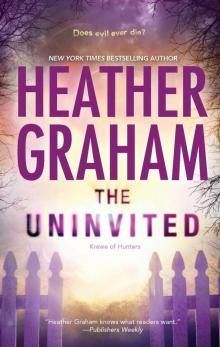 The Uninvited
The Uninvited Dust to Dust
Dust to Dust Heart of Evil
Heart of Evil A Perfect Obsession
A Perfect Obsession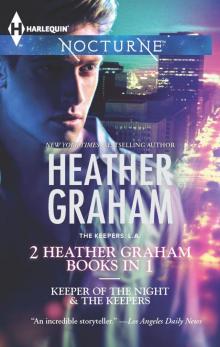 The Keepers
The Keepers Pale as Death
Pale as Death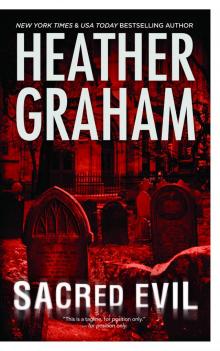 Phantom Evil
Phantom Evil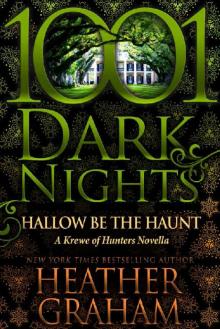 Hallow Be the Haunt
Hallow Be the Haunt Night of the Wolves
Night of the Wolves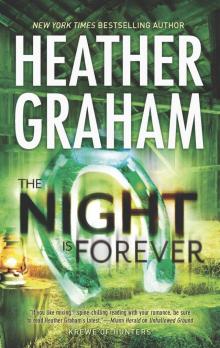 The Night Is Forever
The Night Is Forever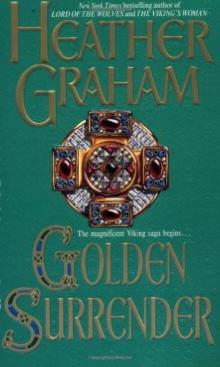 Golden Surrender
Golden Surrender Kiss of Darkness
Kiss of Darkness Beneath a Blood Red Moon
Beneath a Blood Red Moon A Dangerous Game
A Dangerous Game Ghost Shadow
Ghost Shadow Long, Lean, and Lethal
Long, Lean, and Lethal Fade to Black
Fade to Black The Rising
The Rising And One Wore Gray
And One Wore Gray Rebel
Rebel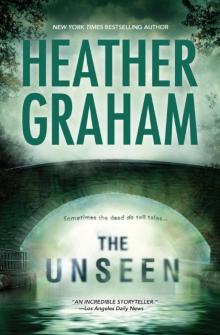 The Unseen
The Unseen The Night Is Watching
The Night Is Watching The Evil Inside
The Evil Inside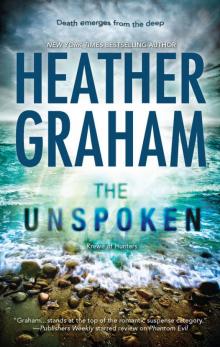 The Unspoken
The Unspoken The Night Is Alive
The Night Is Alive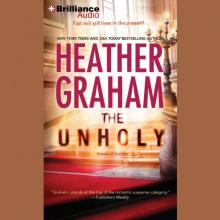 The Unholy
The Unholy Nightwalker
Nightwalker Deadly Harvest
Deadly Harvest An Angel for Christmas
An Angel for Christmas A Pirate's Pleasure
A Pirate's Pleasure American Drifter
American Drifter Realm of Shadows
Realm of Shadows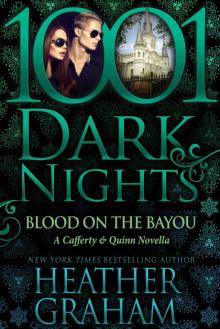 Blood on the Bayou
Blood on the Bayou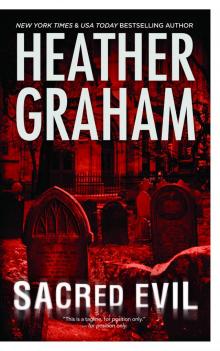 Sacred Evil
Sacred Evil Dying to Have Her
Dying to Have Her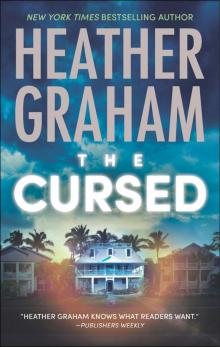 The Cursed
The Cursed Captive
Captive Hurricane Bay
Hurricane Bay Drop Dead Gorgeous
Drop Dead Gorgeous Ghost Memories
Ghost Memories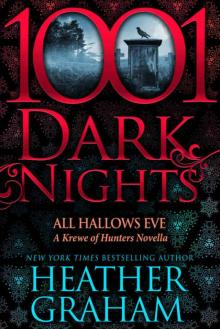 All Hallows Eve
All Hallows Eve Dying Breath
Dying Breath Deadly Fate
Deadly Fate The Dead Room
The Dead Room Lord of the Wolves
Lord of the Wolves Ghost Night
Ghost Night Ghost Walk
Ghost Walk The Forgotten
The Forgotten Unhallowed Ground
Unhallowed Ground One Wore Blue
One Wore Blue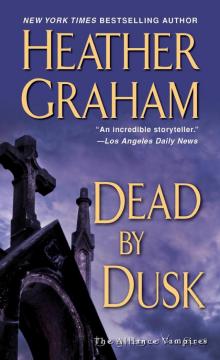 Dead By Dusk
Dead By Dusk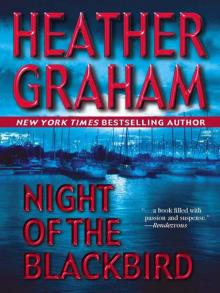 Night of the Blackbird
Night of the Blackbird The Dead Play On
The Dead Play On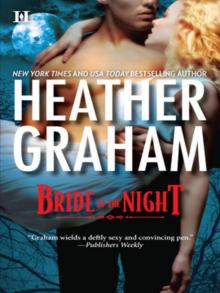 Bride of the Night
Bride of the Night Wicked Deeds
Wicked Deeds The Forbidden
The Forbidden Triumph
Triumph Out of the Darkness
Out of the Darkness Love Not a Rebel
Love Not a Rebel The Last Noel
The Last Noel Tall, Dark, and Deadly
Tall, Dark, and Deadly The Death Dealer
The Death Dealer Dead on the Dance Floor
Dead on the Dance Floor Law and Disorder
Law and Disorder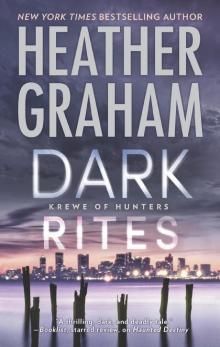 Dark Rites
Dark Rites New Year's Eve
New Year's Eve Hostage At Crystal Manor
Hostage At Crystal Manor And One Rode West
And One Rode West Home in Time for Christmas
Home in Time for Christmas Killing Kelly
Killing Kelly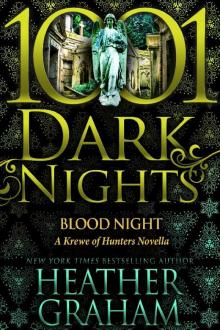 Blood Night
Blood Night Tangled Threat (Mills & Boon Heroes)
Tangled Threat (Mills & Boon Heroes)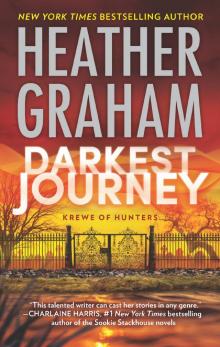 Darkest Journey
Darkest Journey Glory
Glory Deadly Touch
Deadly Touch An Unexpected Guest
An Unexpected Guest Night of the Vampires
Night of the Vampires Seize the Wind
Seize the Wind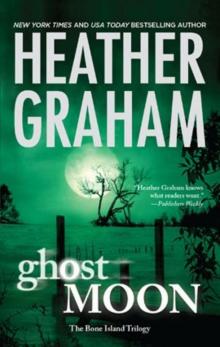 Ghost Moon
Ghost Moon The Vision
The Vision Dreaming Death
Dreaming Death Conspiracy to Murder
Conspiracy to Murder Horror-Ween (Krewe of Hunters)
Horror-Ween (Krewe of Hunters)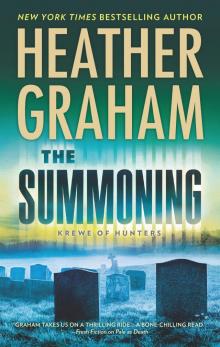 The Summoning
The Summoning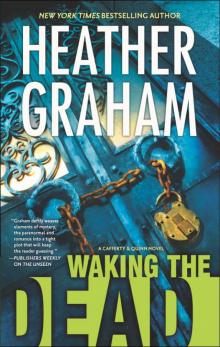 Waking the Dead
Waking the Dead Danger in Numbers
Danger in Numbers The Hidden
The Hidden Sweet Savage Eden
Sweet Savage Eden Tangled Threat ; Suspicious
Tangled Threat ; Suspicious Mother's Day, the Krewe, and a Really Big Dog
Mother's Day, the Krewe, and a Really Big Dog Picture Me Dead
Picture Me Dead The Killing Edge
The Killing Edge St. Patrick's Day
St. Patrick's Day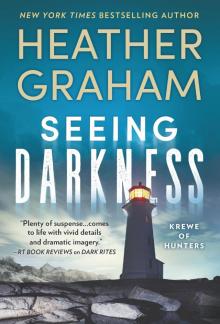 Seeing Darkness
Seeing Darkness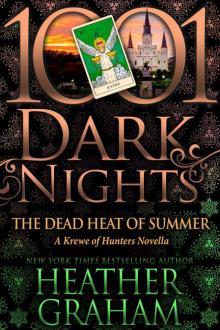 The Dead Heat of Summer: A Krewe of Hunters Novella
The Dead Heat of Summer: A Krewe of Hunters Novella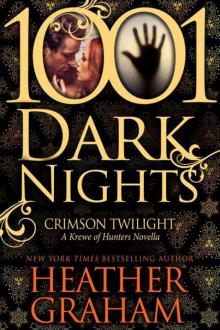 Crimson Twilight
Crimson Twilight Haunted Destiny
Haunted Destiny Devil's Mistress
Devil's Mistress Banshee
Banshee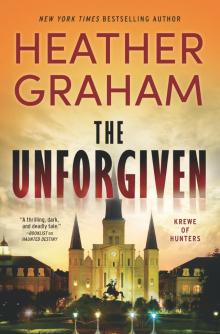 The Unforgiven
The Unforgiven The Final Deception
The Final Deception A Horribly Haunted Halloween
A Horribly Haunted Halloween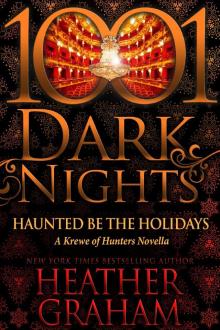 Haunted Be the Holidays
Haunted Be the Holidays Deadly Gift
Deadly Gift Easter, the Krewe and Another Large White Rabbit
Easter, the Krewe and Another Large White Rabbit Haunted
Haunted The Silenced
The Silenced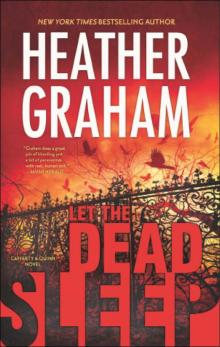 Let the Dead Sleep
Let the Dead Sleep Christmas, the Krewe, and Kenneth
Christmas, the Krewe, and Kenneth Big Easy Evil
Big Easy Evil Sinister Intentions & Confiscated Conception
Sinister Intentions & Confiscated Conception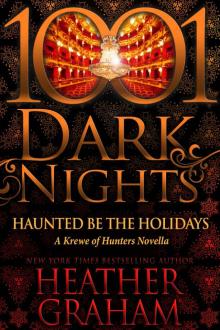 Haunted Be the Holidays: A Krewe of Hunters Novella
Haunted Be the Holidays: A Krewe of Hunters Novella Blood Red
Blood Red A Perilous Eden
A Perilous Eden Slow Burn
Slow Burn Strangers In Paradise
Strangers In Paradise Bitter Reckoning
Bitter Reckoning Krewe of Hunters, Volume 1: Phantom Evil ; Heart of Evil ; Sacred Evil ; The Evil Inside
Krewe of Hunters, Volume 1: Phantom Evil ; Heart of Evil ; Sacred Evil ; The Evil Inside Do You Fear What I Fear?
Do You Fear What I Fear? The Face in the Window
The Face in the Window Krewe of Hunters, Volume 3: The Night Is WatchingThe Night Is AliveThe Night Is Forever
Krewe of Hunters, Volume 3: The Night Is WatchingThe Night Is AliveThe Night Is Forever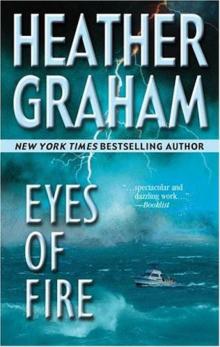 Eyes of Fire
Eyes of Fire Apache Summer sb-3
Apache Summer sb-3 Sensuous Angel
Sensuous Angel In the Dark
In the Dark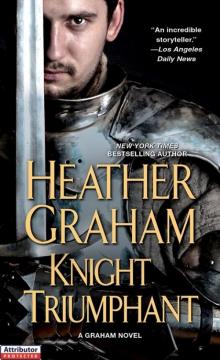 Knight Triumphant
Knight Triumphant Hours to Cherish
Hours to Cherish Tender Deception
Tender Deception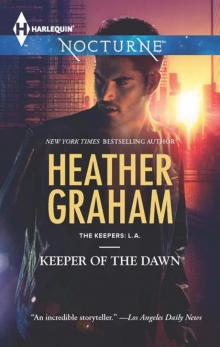 Keeper of the Dawn tkl-4
Keeper of the Dawn tkl-4 Apache Summer
Apache Summer Between Roc and a Hard Place
Between Roc and a Hard Place Echoes of Evil
Echoes of Evil The Game of Love
The Game of Love Sacred Evil (Krewe of Hunters)
Sacred Evil (Krewe of Hunters) Bougainvillea
Bougainvillea Tender Taming
Tender Taming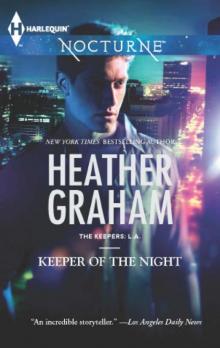 Keeper of the Night (The Keepers: L.A.)
Keeper of the Night (The Keepers: L.A.) Lonesome Rider and Wilde Imaginings
Lonesome Rider and Wilde Imaginings Lucia in Love
Lucia in Love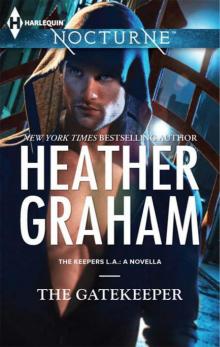 The Gatekeeper
The Gatekeeper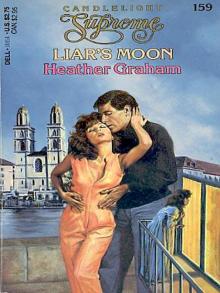 Liar's Moon
Liar's Moon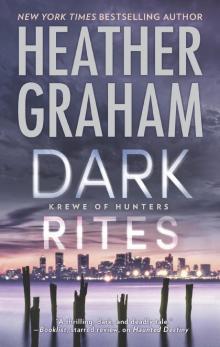 Dark Rites--A Paranormal Romance Novel
Dark Rites--A Paranormal Romance Novel A Season for Love
A Season for Love Krewe of Hunters, Volume 6: Haunted Destiny ; Deadly Fate ; Darkest Journey
Krewe of Hunters, Volume 6: Haunted Destiny ; Deadly Fate ; Darkest Journey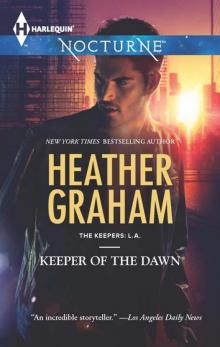 Keeper of the Dawn (The Keepers: L.A.)
Keeper of the Dawn (The Keepers: L.A.)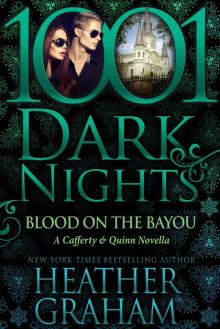 Blood on the Bayou: A Cafferty & Quinn Novella
Blood on the Bayou: A Cafferty & Quinn Novella Double Entendre
Double Entendre A Perfect Obsession--A Novel of Romantic Suspense
A Perfect Obsession--A Novel of Romantic Suspense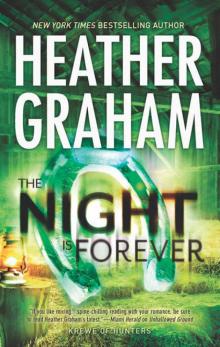 The Night Is Forever koh-11
The Night Is Forever koh-11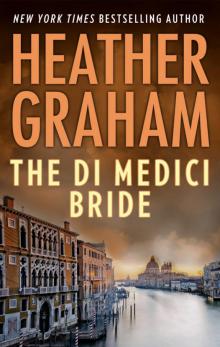 The Di Medici Bride
The Di Medici Bride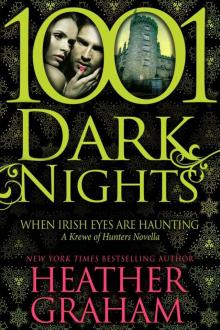 When Irish Eyes Are Haunting: A Krewe of Hunters Novella
When Irish Eyes Are Haunting: A Krewe of Hunters Novella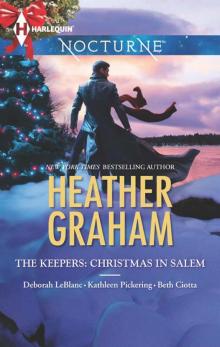 The Keepers: Christmas in Salem: Do You Fear What I Fear?The Fright Before ChristmasUnholy NightStalking in a Winter Wonderland (Harlequin Nocturne)
The Keepers: Christmas in Salem: Do You Fear What I Fear?The Fright Before ChristmasUnholy NightStalking in a Winter Wonderland (Harlequin Nocturne) Never Fear
Never Fear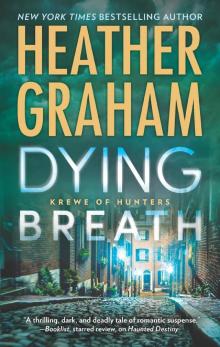 Dying Breath--A Heart-Stopping Novel of Paranormal Romantic Suspense
Dying Breath--A Heart-Stopping Novel of Paranormal Romantic Suspense If Looks Could Kill
If Looks Could Kill This Rough Magic
This Rough Magic Heather Graham's Christmas Treasures
Heather Graham's Christmas Treasures Hatfield and McCoy
Hatfield and McCoy The Trouble with Andrew
The Trouble with Andrew Never Fear - The Tarot: Do You Really Want To Know?
Never Fear - The Tarot: Do You Really Want To Know?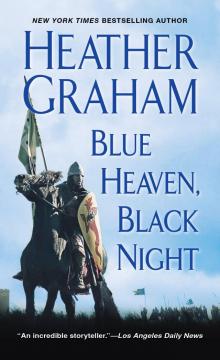 Blue Heaven, Black Night
Blue Heaven, Black Night Forbidden Fire
Forbidden Fire Come the Morning
Come the Morning Dark Stranger sb-4
Dark Stranger sb-4 Lie Down in Roses
Lie Down in Roses Red Midnight
Red Midnight Krewe of Hunters Series, Volume 5
Krewe of Hunters Series, Volume 5 Night, Sea, And Stars
Night, Sea, And Stars Snowfire
Snowfire Quiet Walks the Tiger
Quiet Walks the Tiger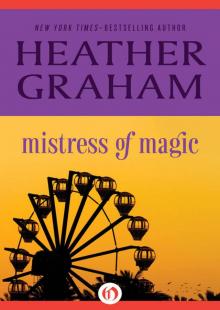 Mistress of Magic
Mistress of Magic For All of Her Life
For All of Her Life Runaway
Runaway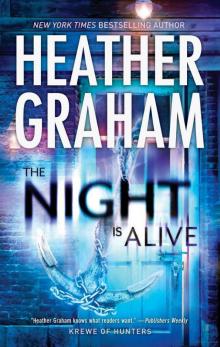 The Night Is Alive koh-10
The Night Is Alive koh-10 The Evil Inside (Krewe of Hunters)
The Evil Inside (Krewe of Hunters)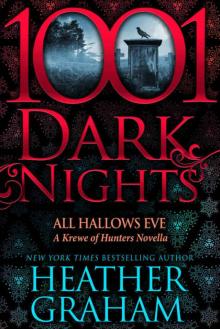 All Hallows Eve: A Krewe of Hunters Novella (1001 Dark Nights)
All Hallows Eve: A Krewe of Hunters Novella (1001 Dark Nights) Tomorrow the Glory
Tomorrow the Glory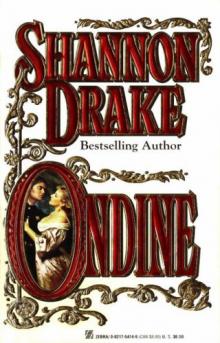 Ondine
Ondine Angel of Mercy & Standoff at Mustang Ridge
Angel of Mercy & Standoff at Mustang Ridge Bride of the Tiger
Bride of the Tiger When Next We Love
When Next We Love Heather Graham Krewe of Hunters Series, Volume 4
Heather Graham Krewe of Hunters Series, Volume 4 A Season of Miracles
A Season of Miracles Realm of Shadows (Vampire Alliance)
Realm of Shadows (Vampire Alliance) When We Touch
When We Touch Serena's Magic
Serena's Magic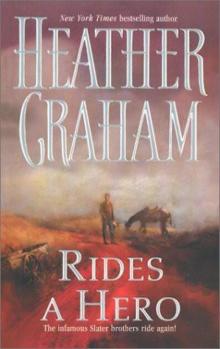 Rides a Hero sb-2
Rides a Hero sb-2 All in the Family
All in the Family Handful of Dreams
Handful of Dreams A Stranger in the Hamptons
A Stranger in the Hamptons Krewe of Hunters, Volume 2: The Unseen ; The Unholy ; The Unspoken ; The Uninvited
Krewe of Hunters, Volume 2: The Unseen ; The Unholy ; The Unspoken ; The Uninvited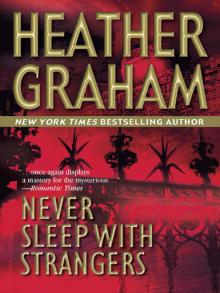 Never Sleep With Strangers
Never Sleep With Strangers Eden's Spell
Eden's Spell A Magical Christmas
A Magical Christmas Forever My Love
Forever My Love King of the Castle
King of the Castle Night Moves (60th Anniversary)
Night Moves (60th Anniversary) The Island
The Island Borrowed Angel
Borrowed Angel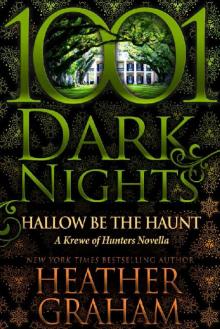 Hallow Be the Haunt: A Krewe of Hunters Novella
Hallow Be the Haunt: A Krewe of Hunters Novella Why I Love New Orleans
Why I Love New Orleans The Last Cavalier
The Last Cavalier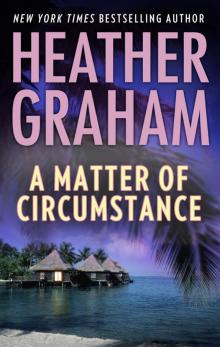 A Matter of Circumstance
A Matter of Circumstance Heather Graham's Haunted Treasures
Heather Graham's Haunted Treasures Tempestuous Eden
Tempestuous Eden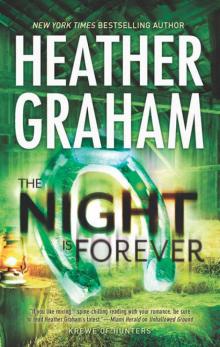 Krewe 11 - The Night Is Forever
Krewe 11 - The Night Is Forever